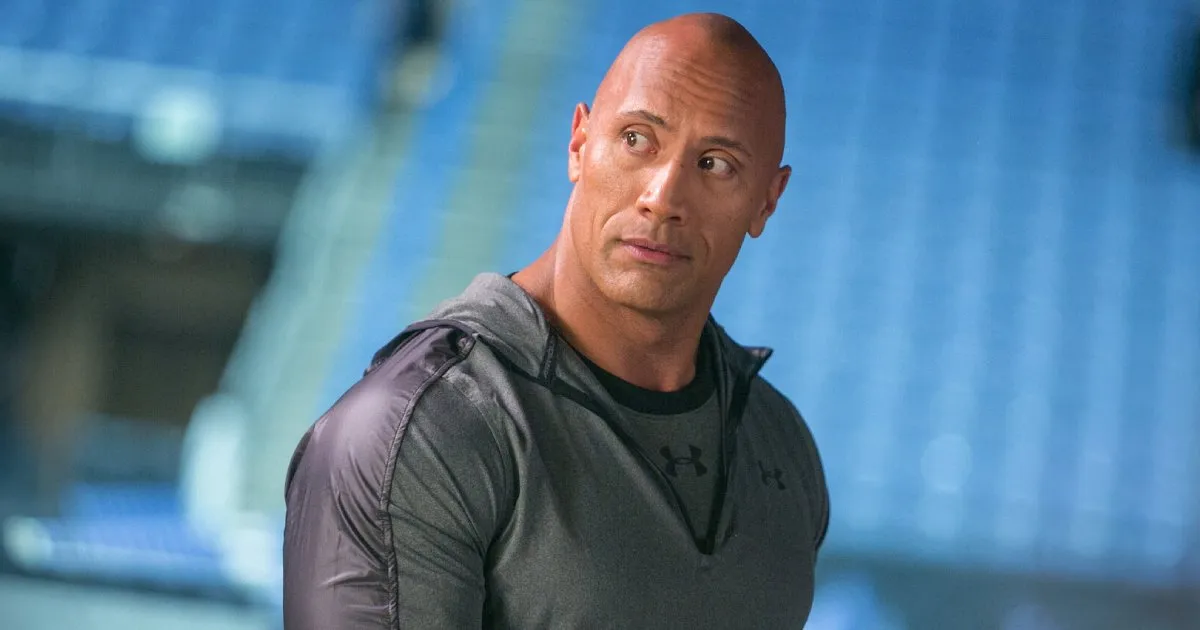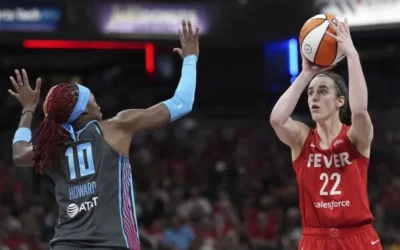Dwayne Johnson: The Scene-Stealer and the Controversial ‘Black Adam’
Dwayne “The Rock” Johnson has long been a fixture in Hollywood, known for his charismatic performances and larger-than-life presence. Everything he touches seems to sparkle—until it doesn’t. Among his recent ventures, Johnson’s cameo in a surprising 93%-rated sports drama has drawn adoring praise, while his lead role in Black Adam has faced extensive scrutiny. Fans of DC Comics have begun to credit the success of James Gunn’s new Superman film to the perceived incompetence of Johnson’s super-powered alter ego, encapsulating the diverse perspectives surrounding the actor’s career.
A Scene-Stealer in the Making
Johnson’s role in the sports drama has proven unforgettable, marking a high point for the actor as he continues to expand his portfolio beyond the action genre. Critics and audiences alike have praised his performance, highlighting his ability to emote complex themes of hope and resilience, a testament to storytelling in cinema that resonates deeply with viewers.
With a striking 93% rating on Rotten Tomatoes, this film has been embraced as a testament to the underdog narrative, and Johnson’s scene-stealing cameo elevates the experience. It’s a refreshing touch that showcases his range and allows audiences to connect with the narrative beyond explosive action sequences or comedic one-liners.
Dark Clouds Over ‘Black Adam’
Conversely, Black Adam, which aimed to introduce a new era of DC superheroes, has sputtered critically. While the film intended to position Johnson as a cornerstone of the DC Extended Universe (DCEU), audiences have not responded favorably. Reviews point to a multitude of issues, from the uneven pacing to a narrative that struggled to find its feet. Critics have not shied away from pointing fingers at Johnson’s performance, framing it as the film’s tongue-tied anchor.
Fans have rallied around James Gunn’s more recent projects, suggesting that Johnson’s portrayal has paved the way for a fresh start within the DCEU. Social media discussions even highlighted quotes like, “Thank you, Dwayne, for being so bad in Black Adam,” indicating a sense of irony where Johnson’s lackluster performance in one film is credited for an explosive creative turnaround in another.
The Tapestry of Dwayne Johnson’s Career
To appreciate the complexities surrounding Johnson’s dual image within the film industry, it’s essential to consider the various phases of his career. Since transitioning from professional wrestling to acting, Johnson has successfully navigated the challenges of Hollywood and garnered a devoted fanbase. Films such as Jumanji: Welcome to the Jungle and Fast & Furious franchises have solidified his position as a blockbuster star.
His unique charm and ability to connect with audiences have kept him ascending the career ladder amidst mixed reviews of some of his projects. But it’s this same alchemy that raises expectations, leading fans to anticipate great performances in every venture. When those expectations aren’t met, backlash is often swift.
A Divide in the Fanbase
The bifurcation in Johnson’s fanbase is a fascinating topic, reflecting the broader cultural sentiment that examines both his successes and failures. Those who appreciate his ability to command the screen celebrate his achievements with gusto, while critical audiences dissect the elements that falter.
“Dwayne Johnson has that star power and charisma,” said cinematic critic and film historian Lisa Reynolds. “But with projects like Black Adam, he may have bitten off more than he could chew. It’s become a complicated legacy—one that speaks both to his undeniable talent and the pitfalls of trying to assume the hero mantle without sufficient groundwork.”
Relatability vs. Heroism
This brings us to an interesting point about relatability versus heroism. Fans online argue whether Johnson’s portrayal of Black Adam strayed too far from the character’s comic book roots. In the realm of superhero narratives, many argue that viewers continuously seek depth, complexity, and relatability in their heroes. Johnson’s Black Adam felt one-dimensional, pulling viewers away from the expectations of depth they have drawn from modern superhero tales.
With the reboot of the Superman franchise under James Gunn, many are eager for a deeper, emotional exploration of the characters, holding firm to the idea that the essence of these heroes needs to evolve alongside their performances. “We want characters we can relate to. Dwayne Johnson made Black Adam feel like a façade,” commented film enthusiast Tony Mendoza.
The Future of Dwayne Johnson
Despite the criticisms and mixed reviews, the industry has not closed its doors on Dwayne Johnson. On the horizon, he has announced numerous upcoming projects, including sequels and new ventures meant to polish up his cinematic reputation. Whether he thrives or struggles in future efforts largely depends on how well he can adapt to audience expectations and the evolving landscape of storytelling.
It begs a larger question: Can Johnson reclaim the narrative surrounding his work? Or is he destined to remain a polarizing figure? The landscape seems to suggest that audiences are growing more dynamic in their understanding and expectations of heroism.
Conclusion: A Bright Future or a Stumbling Block?
In conclusion, Dwayne Johnson remains an enigmatic figure, capable of captivating audiences one moment, only to stumble in the next. His cameo in a 93%-rated sports drama speaks to his potential for meaningful storytelling, yet Black Adam remains a black mark on his filmography. As cinema continues to evolve, Johnson’s ability to navigate these waters will determine if he cements his legacy or becomes a cautionary tale in the film industry.
The entertainment world will undoubtedly be watching, waiting to see where Johnson’s journey leads next, and whether a new chapter can begin that defies the controversies of the past, bringing fans back together in shared admiration of his work.







